Uses Of MATLAB
MATLAB is a highly versatile tool widely used across various fields due to its robust computational and analytical capabilities. In engineering, MATLAB excels at designing and analyzing control systems, particularly through its Simulink platform, which facilitates modeling and simulation.
It is also extensively used in signal processing for filtering and analyzing signals, and in image processing for enhancing and interpreting visual data, which is crucial in applications like medical imaging and computer vision.
In the realm of data analysis and visualization, MATLAB provides powerful tools for statistical analysis, enabling users to perform complex data fitting, regression, and hypothesis testing
Its advanced visualization capabilities allow users to create a wide range of plots and charts to interpret and present data effectively. This makes MATLAB particularly valuable for researchers and analysts across various disciplines who need to gain insights from complex datasets.
The tool is also pivotal in the fields of machine learning and artificial intelligence, where it is used to develop and test algorithms for tasks such as classification, clustering, and regression. MATLAB supports the building and training of neural networks.
In scientific research, MATLAB is employed for mathematical modeling and simulation, helping researchers model physical systems and study complex phenomena.
Its ability to run simulations makes it a critical asset for investigating systems in fields such as fluid dynamics and biological research.
In finance and economics, MATLAB is used for quantitative analysis, including developing trading algorithms and performing risk assessments. It also supports economic modeling, allowing analysts to forecast trends and evaluate market behaviors.
The aerospace and defense industries leverage MATLAB for simulating flight dynamics and analyzing control systems for aircraft and spacecraft. It is also used in signal intelligence for processing and analyzing radar and communication signals.
5 Best Books To Learn Matlab
Here are 5 best books to learn Matlab according to our research mentioned below:
1) Matlab: A Practical Introduction
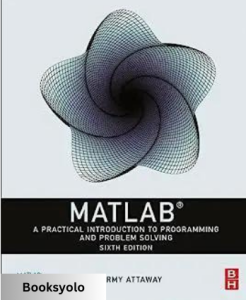
Matlab: A Practical Introduction
MATLAB: A Practical Introduction by Stormy Attaway is a comprehensive guide designed to introduce readers to the MATLAB programming environment and its practical applications.
This book is intended for beginners who are new to MATLAB and want to learn how to use it effectively for various types of numerical computations, data analysis, and visualization tasks.
In MATLAB: A Practical Introduction, Stormy Attaway provides a clear and accessible approach to learning MATLAB. The book is structured to help readers build a strong foundation in MATLAB through practical examples and exercises.
Is suitable for students, engineers, and professionals who are new to MATLAB and want to gain a practical understanding of how to use it.
It is particularly useful for those in fields such as engineering, physics, and data analysis, where MATLAB is commonly used for numerical computation and visualization.
2) MATLAB Programming for Engineers
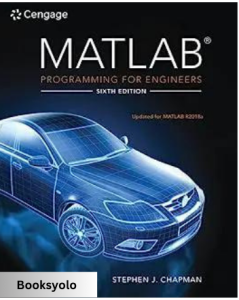
MATLAB Programming for Engineers
MATLAB Programming for Engineers by Stephen J. Chapman is a well-regarded textbook designed to teach MATLAB programming with a focus on engineering applications.
This book is tailored for engineers and students who need to understand how to apply MATLAB in practical engineering problems. It provides a thorough introduction to MATLAB, including its programming constructs and how to use the language to solve engineering challenges.
In MATLAB Programming for Engineers,Stephen J. Chapman presents MATLAB as a powerful tool for solving complex engineering problems. The book aims to equip readers with the skills necessary to use MATLAB effectively for numerical computation, data analysis, and visualization in engineering contexts.
3) MATLAB Programming: Mathematical Problem Solutions
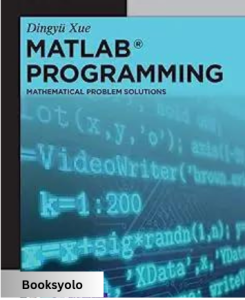
MATLAB Programming: Mathematical Problem Solutions
MATLAB Programming: Mathematical Problem Solutions by Michael H. Weist is a practical guide designed to bridge the gap between MATLAB programming and mathematical problem-solving.
This book focuses on leveraging MATLAB to tackle a wide range of mathematical problems, making it a valuable resource for both students and professionals who need to apply mathematical techniques in their work.
In MATLAB Programming: Mathematical Problem Solutions, Michael H. Weist provides a focused approach to using MATLAB for solving mathematical problems.
The book aims to teach readers how to apply MATLAB’s powerful computational tools to a variety of mathematical challenges, offering solutions and strategies for effectively using MATLAB in mathematical contexts.
4) MATLAB for Engineers
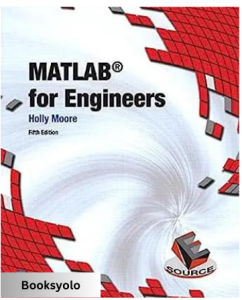
MATLAB for Engineers
MATLAB for Engineers by Holly Moore is a comprehensive textbook aimed at helping engineering students and professionals use MATLAB effectively for solving engineering problems.
The book provides a practical introduction to MATLAB, focusing on its application in engineering contexts and offering a blend of theory and hands-on practice.
In MATLAB for Engineers, Holly Moore presents MATLAB as a powerful tool for engineering applications. The book is designed to help readers understand how to use MATLAB for numerical analysis, data visualization, and problem-solving in various engineering disciplines.
It emphasizes practical skills and real-world applications, making it a valuable resource for both learning and reference.
5)MATLAB For Beginners
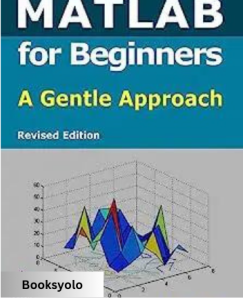
MATLAB For Beginners
MATLAB for Beginners by C. K. Y. Leung is a comprehensive guide designed to introduce new users to MATLAB, focusing on fundamental concepts and basic techniques. This book serves as a practical resource for those who are just starting with MATLAB and need to develop a solid understanding of its core functionalities.
In MATLAB for Beginners, C. K. Y. Leung provides an accessible and structured introduction to MATLAB, catering specifically to those who are new to the software. The book aims to build a strong foundation in MATLAB programming, covering essential topics and offering practical examples that facilitate learning and application.
Conclusion
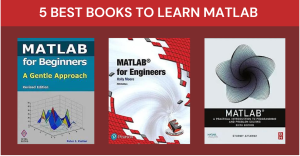






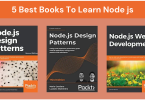
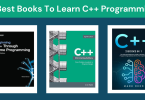
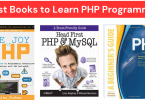
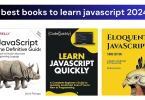

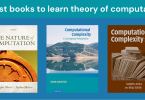
Leave a Comment